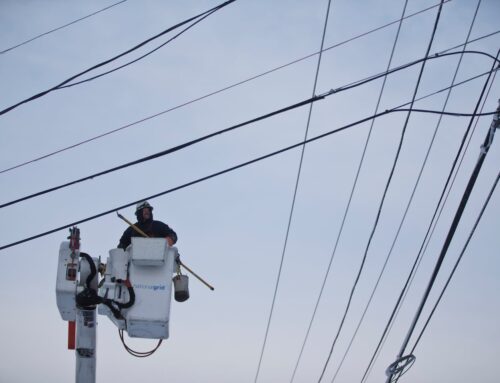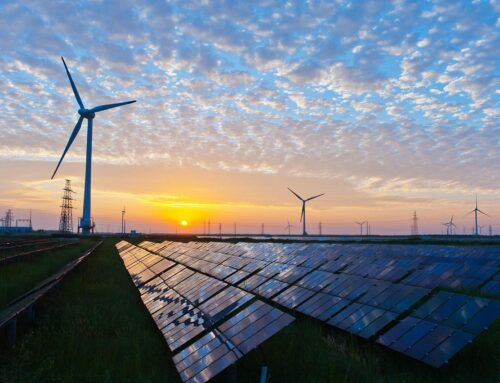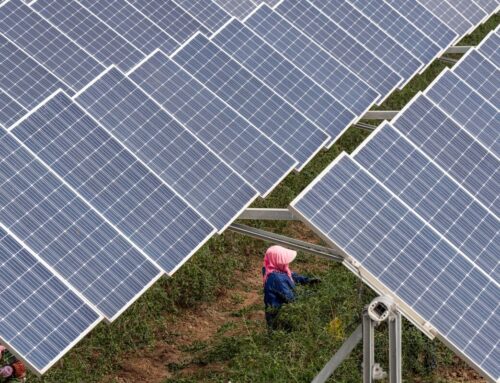ESG News Recap: Trump Sets Back U.S. Clean Energy Efforts
October 6, 2025
Today’s ESG Updates
- Trump’s War on Clean Energy Sets Back U.S. Efforts: Despite global advancements in renewable energy, the U.S. remains focused on fossil fuels, further distancing itself from climate goals.
- French Political Instability Worsens: Prime Minister Lecornu’s resignation sends shockwaves through the market, causing bond yields to spike and stocks to fall.
- Germany Launches $7B Industrial Decarbonization: Germany’s new initiative will fund carbon capture projects for heavy industries to reduce emissions and maintain competitiveness.
- Butterflies Are Losing Their Brilliant Colours: Habitat loss and deforestation are causing butterflies’ colours to fade, highlighting broader ecological impacts.
Trump’s Push Against Renewables Threatens U.S. Climate Progress
President Trump’s administration continues to push policies that hinder the growth of clean energy, even as the rest of the world accelerates its renewable energy efforts. Trump’s actions have included halting offshore wind projects, eliminating subsidies for solar and electric vehicles, and reinstating policies favorable to fossil fuels. These moves are expected to slow down the adoption of clean energy in the U.S. and undermine its global standing in the fight against climate change. As clean energy markets surge worldwide, experts warn that the U.S. risks falling behind its international competitors. While Trump remains a staunch advocate for fossil fuels, the global shift towards decarbonisation continues to gather momentum.
***
Further reading: Trump’s hatred for renewables means the US is falling behind the rest of the world
French Political Instability Escalates as Prime Minister Lecornu Resigns

France’s political turmoil took another dramatic turn as Prime Minister Sébastien Lecornu resigned just hours after his cabinet was appointed. This latest development has sent shockwaves through the financial markets, with investors pushing bond yields higher and driving stock prices down. The CAC 40 Index fell by 2%, while the yield on 10-year French bonds rose to 3.58%, marking a nine-month high against the German bond yields.
The resignation follows escalating criticism of Lecornu’s cabinet composition, intensifying concerns over France’s ability to tackle its growing budget crisis. The country’s national debt has surpassed €3 trillion, equivalent to 114% of GDP. With political fragmentation deepening, there are growing fears that fiscal consolidation efforts will remain stalled, further dampening investor confidence.
“The political system’s increasing fragmentation weakens its ability to implement fiscal reforms,” noted Fitch, which recently downgraded France’s credit rating. Economic experts predict that despite rising bond spreads, the overall economic impact will likely remain contained, though continued political uncertainty could dampen economic growth in the coming years.
***
Further reading: French bond yields spike, stocks fall as another government collapses
Featured ESG Tool of the Week:
Klimado – Navigating climate complexity just got easier. Klimado offers a user-friendly platform for tracking local and global environmental shifts, making it an essential tool for climate-aware individuals and organizations.
Germany Expands Industrial Decarbonization Efforts with CCS Inclusion

Germany has launched a €6 billion ($7 billion) funding program aimed at reducing emissions in heavy industries, including steel, chemicals, cement, and glass. The initiative introduces carbon capture and storage (CCS) as part of the country’s industrial decarbonisation strategy, marking a significant expansion in efforts to meet climate goals without compromising economic competitiveness. The program offers long-term, state-backed contracts to firms adopting cleaner technologies, with a focus on high-emission sectors where low-carbon solutions are not yet cost-effective without state support. The first competitive bidding round will open in 2026, pending EU approval.
***
Further reading: Germany Launches $7B Industrial Decarbonization Program Integrating CCS
Butterflies’ Colours Fade Due to Habitat Loss

New research in Brazil reveals that habitat loss is causing butterfly colours to fade, with the most vibrant species disappearing from deforested areas. In tropical forests, butterflies rely on vivid colours for survival, aiding in mating and camouflage. However, in monoculture plantations like eucalyptus, butterflies with muted colours are thriving. Researchers found a stark contrast between vibrant butterflies in natural forests and the duller species in plantations. This change reflects a broader trend in nature where biodiversity is diminishing, and ecosystems are becoming more uniform. Experts warn that the decline in butterfly colour diversity signals a loss of ecological complexity, with potential cascading effects on other species and ecosystem functions. The study emphasizes the urgent need to protect and restore native habitats to preserve biodiversity.
***
Further reading: As forests are cut down, butterflies are losing their colours
Editor’s Note: The opinions expressed here by the authors are their own, not those of impakter.com — In the Cover Photo: Red cap. Cover Photo Credit: Natilyn Hicks Photography
Tags: clear energydecorbanizationglobal extinctTrump
Search
RECENT PRESS RELEASES
Related Post



